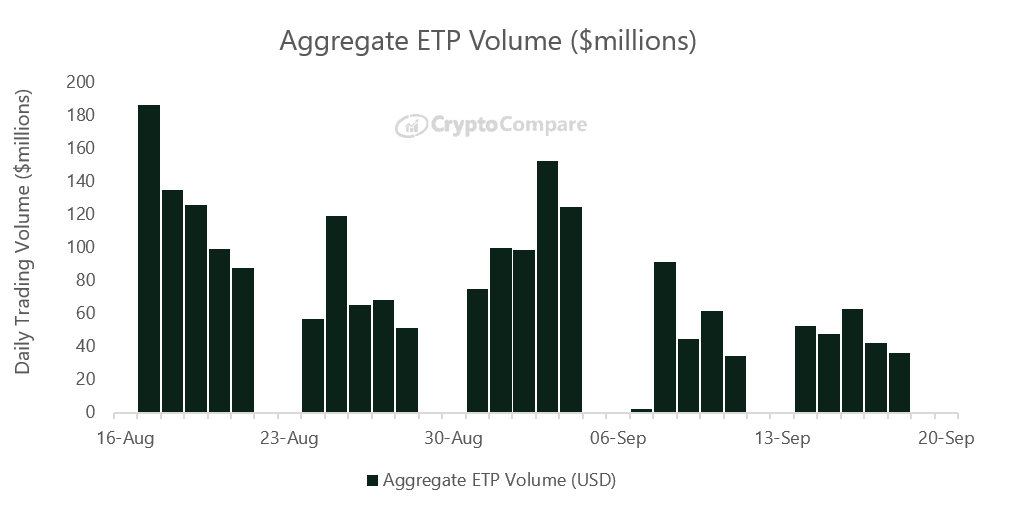Bitcoin Steady at $26K, SOL Slightly Dips After FTX Gets Approval to Sell Crypto
The price of bitcoin (BTC) has remained steady Wednesday above the $26,000 level as FTX obtained approval to sell its crypto assets from a bankruptcy court and slightly higher-than-expected headline inflation data in the U.S.
The largest crypto asset rose to $26,350 during U.S. afternoon hours, but slightly retraced after the FTX news. It recently changed hands at $26,135, down 0.3% over the past 24 hours.
Solana’s SOL also advanced earlier today, but then swiftly dipped more than 2% following the court decision. The imploded exchange holds $1.16 billion of the token, stoking fears about dumping, but part of the stash is locked as venture investment and not available for sales. Despite the decline, SOL was still up 1.2% for the day.
Aptos (APT), another large holdings of FTX, dropped nearly 2% on the news, but retained most of its gain being up 3% through the day.
:format(jpg)/cloudfront-us-east-1.images.arcpublishing.com/coindesk/2GXQQZJ7OZESXJYB3KFNDRGPYA.png)
Ethereum (ETH), Cardano (ADA), XRP prices are little-changed
Other major cryptocurrencies moved roughly in line with BTC. Ether (ETH), Cardano’s ADA and Ripple’s XRP remained little changed, sliding less than 0.5% during the day.
Crypto exchange Huobi announced today that it has rebranded to HTX, which sent the exchange’s HT token almost 3% higher before giving up some of the gains.
Toncoin (TON) surged near 10% on the news that messaging app Telegram endorsed the TON network as its blockchain Web3 infrastructure with plans to integrate it into the app. TON has retraced most of the move but was recently still up 1.7%.
The CoinDesk Market Index (CMI), a broad market proxy, was up 0.2%.
U.S. inflation above expectations
The U.S. government’s Consumer Price Index (CPI) report for August also came out Wednesday, and the data was slightly hotter than expected. The report showed headline inflation rose to 3.7% on a year-over-year basis from 3.2% a month earlier. That jump was greater than economist forecasts for 3.6%.
Behind the inflation advance were rising oil prices, which hit a new 2023 high late last month, a move that has continued into September.
Stripping out food and energy costs, core CPI fell to a 4.3% in August from 4.7% in July and in line with expectations.
What’s next for BTC’s price
It’s been nearly one month since bitcoin suffered a dramatic decline, falling from about the $29,000 level to below $26,000 in just a handful of hours.
Since then, the crypto has attempted to break out of a tight area surrounding $26,000 on a number of occasions – both to the upside and the downside – but has quickly retreated or bounced back to that range.
The action of traders “selling the rip and buying the dip” has become so entrenched over the past several months that it’s hard to imagine any marginal economic news affecting this dynamic. While bulls hope the U.S. Federal Reserve might soon begin cutting interest rates, the economy continues to grow and inflation appears to be settling in for a long period above the central bank’s 2% target.
While BTC has been remained steady around the current price levels, some analysts highlighted the deteriorating technical picture for the largest cryptocurrency.
“Bitcoin’s technicals are sliding. Price is trading around support at $26,000, but I doubt it is a hard floor,” Charlie Morris, chief investment officer at ByteTree Asset Management, wrote in a Wednesday market update.
He expects that BTC will trade in the range between $20,000 and $30,000 until the halving around next April. “We just have to wait for better times,” he concluded.
“We expect an imminent final decline to close out the quarter at the lows,” QCP Capital said Tuesday in a Telegram update. The crypto trading firm said that a series of negative news over the next weeks such as a more hawkish Federal Reserve meeting next week, FTX asset sales and Mt Gox fund repayment could push the price down to around $23,000.
“The true bottom will come in mid-late October when the bad news cycle has run its course,” QCP added. “We nonetheless remain bullish following that, into year-end and Q1 next year.”
Edited by Nick Baker.









